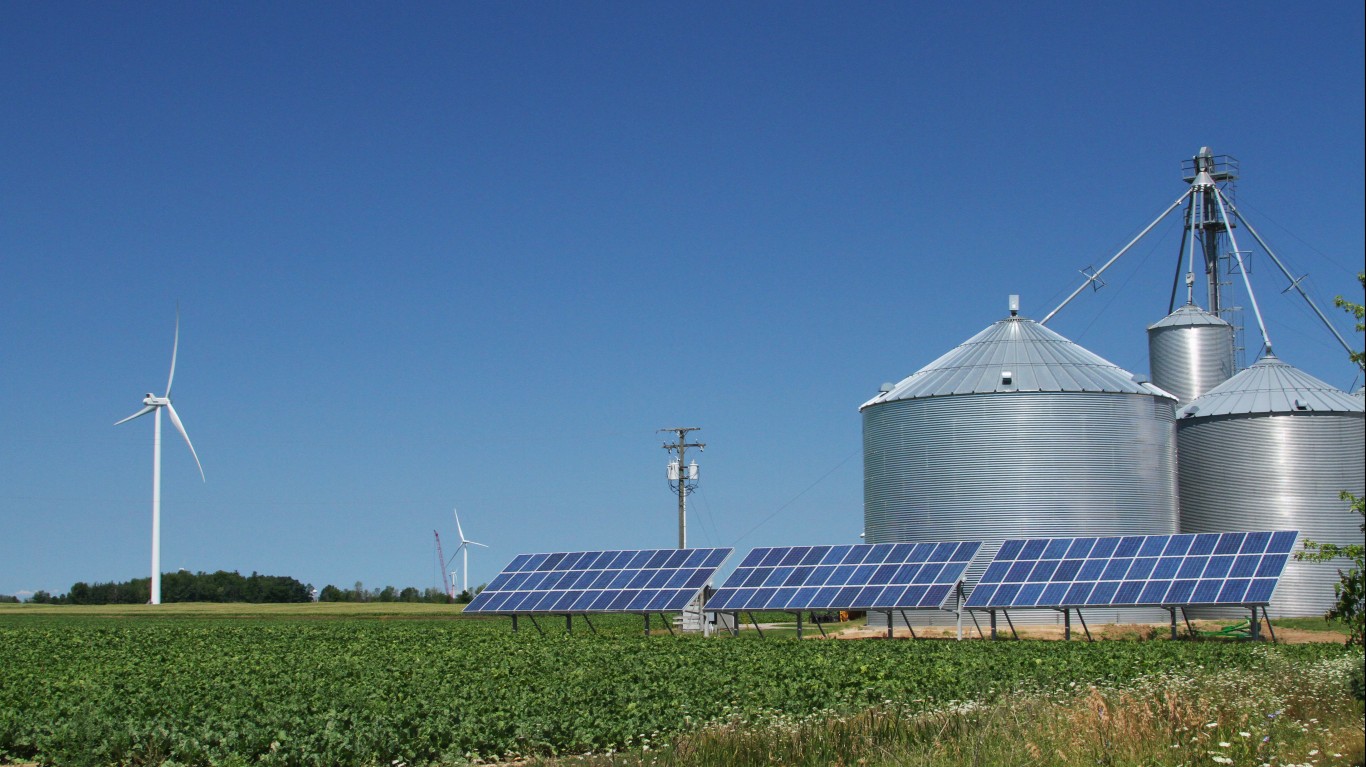Health and Healthcare
COVID-19: This Is America's Worst Hotspot

Published:
Last Updated:

The rate of the spread of COVID-19 had slowed across America. Increases in daily fatal and confirmed cases are still about half what they were seven weeks ago. Nevertheless, 565,507 Americans have died, which is about 20% of the world’s total. Confirmed cases have reached 31,207,770, or about 23% of the global number. Hospitalizations, which were over 100,000 a day during the peak wave, dropped into the thousands. However, the U.S. Department of Health & Human Services reports they have begun to rise again in more than half the states.
The pace of the spread of the disease remains in part a race between vaccinations and the rising number of potentially dangerous variants. So far, 34% of the adult population has received at least one dose of vaccine and 21% are fully vaccinated. While the Pfizer and Moderna vaccines require two shots, the one from Johnson & Johnson requires just a single dose. According to The New York Times, 233,591,955 doses have been delivered in the United States and 178,837,781 of them have been administered.
Variants of the disease are among the dangers epidemiologist and public health officials worry about. At least one, first identified in the United Kingdom, now accounts for most new U.S. cases. This variant also could be more deadly. The Centers for Disease Control and Prevention (CDC) currently tracks three variants for the public. They have been found in all 50 states, and a number of other variants have emerged that the CDC does not report on to the public.
Additionally, much of the country has “opened up,” which has caused worries that there will be a fourth wave of the disease. Just two weeks ago, the nation’s newspapers were filled with reports of large college parties in Florida with hundreds of people in close proximity without masks. More people flew over the Easter weekend than any other weekend since the start of the pandemic. This kind of activity has led to public health officials predicting that fourth wave.
Measuring cases per 100,000 people allows realistic comparisons from place to place because it adjusts for population size. The New York Times provides a list of COVID-19 hotspots based on this methodology. It calls the analysis “Hot spots: Counties with the highest number of recent cases per resident.” Based on the daily average of new cases over the past seven days on a per 100,000 basis, the worst hotspot in America is St. Clair County, Michigan, at 169. Michigan has three of the top four counties by the measure, including Otsego County and Huron County.
St. Clair County is to the northeast of Detroit on the Canadian border. According to the U.S. Census Bureau, its population as of July 1, 2019, was 159,128. Ninety-one percent of the population is white. The county’s median household income at $56,951 is about $10,000 below the national average. At 10.4%, its poverty rate is about the same as the nation’s.
There is actually a chance that the situation in St. Clair County could worsen. According to MLive, a review of positive tests showed that in Michigan: “Counties with the highest rates are Huron (36.5%), Sanilac (34.1%), Tuscola (32.6%), and St. Clair (31.1%)”.
Click here to read about the safest county for COVID-19 in the safest state.
Choosing the right (or wrong) time to claim Social Security can dramatically change your retirement. So, before making one of the biggest decisions of your financial life, it’s a smart idea to get an extra set of eyes on your complete financial situation.
A financial advisor can help you decide the right Social Security option for you and your family. Finding a qualified financial advisor doesn’t have to be hard. SmartAsset’s free tool matches you with up to three financial advisors who serve your area, and you can interview your advisor matches at no cost to decide which one is right for you.
Click here to match with up to 3 financial pros who would be excited to help you optimize your Social Security outcomes.
Have questions about retirement or personal finance? Email us at [email protected]!
By emailing your questions to 24/7 Wall St., you agree to have them published anonymously on a673b.bigscoots-temp.com.
By submitting your story, you understand and agree that we may use your story, or versions of it, in all media and platforms, including via third parties.
Thank you for reading! Have some feedback for us?
Contact the 24/7 Wall St. editorial team.